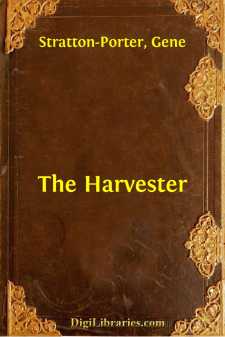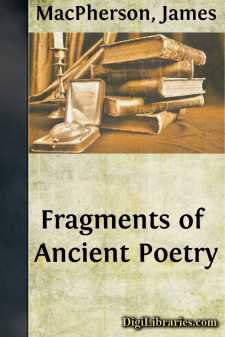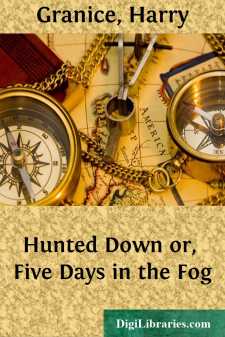Fiction
- Action & Adventure 180
- Biographical 15
- Christian 59
- Classics
- Coming of Age 5
- Contemporary Women 3
- Erotica 8
- Espionage/Intrigue 12
- Fairy Tales, Folklore & Mythology 236
- Family Life 169
- Fantasy 117
- Gay 1
- General 596
- Ghost 32
- Historical 808
- Horror 43
- Humorous 160
- Jewish 25
- Legal 4
- Medical 22
- Mystery & Detective 315
- Political 49
- Psychological 41
- Religious 64
- Romance 159
- Sagas 11
- Science Fiction 730
- Sea Stories 113
- Short Stories (single author) 537
- Sports 10
- Suspense 1
- Technological 8
- Thrillers 2
- Urban Life 31
- Visionary & Metaphysical 1
- War & Military 173
- Westerns 199
Classics Books
Sort by:
by:
Timothy Titcomb
LESSON I. MOODS AND FRAMES OF MIND. "That blessed mood In which the burden of the mystery, In which the heavy and the weary weight Of all this unintelligible world Is lightened." WORDSWORTH. "Oh, blessed temper, whose unclouded ray Can make to-morrow cheerful as to-day." POPE. "My heart and mind and self, never in...
more...
CHAPTER I. BELSHAZZAR'S DECISION "Bel, come here!" The Harvester sat in the hollow worn in the hewed log stoop by the feet of his father and mother and his own sturdier tread, and rested his head against the casing of the cabin door when he gave the command. The tip of the dog's nose touched the gravel between his paws as he crouched flat on earth, with beautiful eyes steadily...
more...
10-Minute Cranberry Sauce 2 cups sugar 2 cups water (one bag or box) Boil sugar and water together 5 minutes. Add cranberries and boil, without stirring, until all the skins pop openâabout 5 minutes. Remove from heat and cool in saucepan. Makes one quart 10-Minute Cranberry Sauce. VARIATIONS Cranberry-Ambrosia. Pour sauce over thin-sliced oranges, top with shredded cocoanut for Cranberry Ambrosia....
more...
by:
James MacPherson
INTRODUCTION Byron was actually the third Scotsman in about fifty years who awoke and found himself famous; the sudden rise from obscurity to international fame had been experienced earlier by two fellow countrymen, Sir Walter Scott and James Macpherson. Considering the greatness of the reputation of the two younger writers, it may seem strange to link their names with Macpherson's, but in the...
more...
CHAPTER I ANCESTRY AND BIRTH All history, says Emerson, "resolves itself into the biographies of a few stout and earnest persons." These remarks find exemplification in the life of William Ewart Gladstone, of whom they are pre-eminently true. His recorded life, from the early period of his graduation to his fourth premiership, would embrace in every important respect not only the history of the...
more...
by:
Harry Granice
On Monday morning, at about fifteen minutes to eight o'clock, December 7th, 1874, immediately after the shooting, or as soon thereafter as I could collect my scattered senses, which was in about three minutes, I inquired for the sheriff for the purpose of giving myself up; but he nor any of his deputies were on the spot. After waiting a few minutes longer I began to grow impatient at the delay of...
more...
TO THE DAISY. In youth from rock to rock I went From hill to hill, in discontent Of pleasure high and turbulent, Most pleas'd when most uneasy; But now my own delights I make, My thirst at every rill can slake, And gladly Nature's love partake Of thee, sweet Daisy! When soothed a while by milder airs, Thee Winter in the garland...
more...
by:
Daniel Hack Tuke
CHAPTER I.MEDICAL AND SUPERSTITIOUS TREATMENT OF THE INSANE IN THE OLDEN TIME. Among our Saxon ancestors the treatment of the insane was a curious compound of pharmacy, superstition, and castigation. Demoniacal possession was fully believed to be the frequent cause of insanity, and, as is well known, exorcism was practised by the Church as a recognized ordinance. We meet with some interesting...
more...
CHAPTER I. VARICK STREET. O for one spot of living green, One little spot where leaves can grow,--To love unblamed, to walk unseen, To dream above, to sleep below! Holmes. There are in this loud stunning tide, Of human care and crime,With whom the melodies abide Of th' everlasting chime; And to wise hearts this certain hope is given;"No mist that man may raise, shall hide the eye...
more...
CHAPTER I CAUGHT BY THE CAMERA "This is getting to be an amazing old world," said a young girl, still in her "teens," as she musingly leaned her chin on her hand. "It has always been an amazing old world, Beth," said another girl who was sitting on the porch railing and swinging her feet in the air. "True, Patsy," was the reply; "but the people are doing such...
more...











